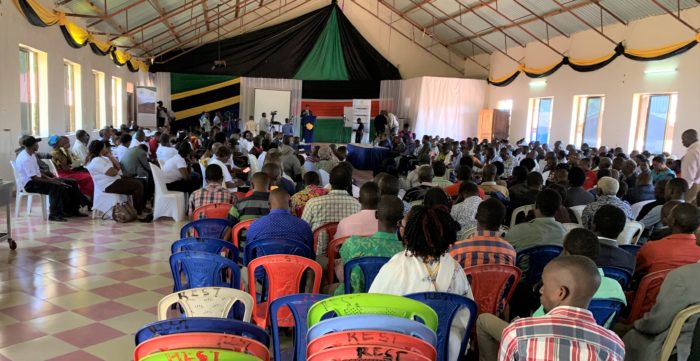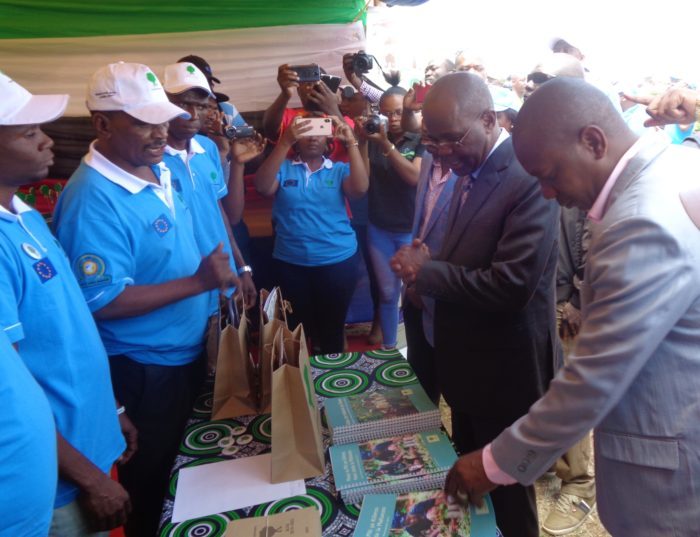Tanzania and Kenya Celebrate, 8th Mara Day
Date
September 20, 2019
The event brought together different key stakeholders drawn from government and different conservation organisations from both Kenya and Tanzania, to discuss and deliberate on conservation of the Serengeti-Mara ecosystem.New to this year’s celebrations was a stakeholder’s workshop that preceded the main event. The workshop aimed at assessing the status, challenges and lessons learnt in managing and sustaining the life of the Mara River basin and draw resolutions for action by the different stakeholders. Speaking at the event, Bomet Governor Dr. Hillary Barchok who was leading the Kenya delegation said “Saving Mara river is everyone’s responsibility. We want to assure Tanzania of our goodwill from the Kenya side and we look forward to a continued and fruitful collaboration. There is however need to review commitments made earlier and have clear guidelines on how we can have functional systematic way of implementing our conservation efforts. Let us not lose sight of the resources we need to conserve the river”.
The Serengeti-Mara ecosystem has been facing many challenges with pressing natural resource management and biodiversity conservation challenges threatening the ecosystem; these include socio-economic, environmental, climate change impacts as well as inadequate policy, legal and institutional responses. During this year’s Mara Day celebrations, Vi Agroforestry spent time in Tanzania with different stakeholders raising awareness on the importance of the Serengeti-Mara ecosystem and sharing on alternative livelihood options that the communities living adjacent to the parks can adopt and peacefully coexist with the wild animals. We draw examples from the SEMA project which Vi Agroforestry and partners have been implementing in the past year. SEMA project is an initiative for the conservation of Serengeti – Mara ecosystem that aims at contributing to conservation of Serengeti-Mara transboundary ecosystems through empowering local communities to adopt sustainable livelihoods and enhancing regional cooperation.

Communities living adjacent to the Serengeti-Mara ecosystem have for a long time struggled with human-wildlife conflicts. To help solve the human-wildlife conflicts, community groups living within and around the core wildlife protected areas and conservancies have been trained in conflict management and compensation/consolation mechanism. Together with the government, we have developed land use plans and sub-catchment management plans and by-laws to guide the implementation of our activities and trained over 1800 farmers on participatory land use mapping to initiate sustainable land use. “The Livelihoods of the communities living along the Mara River Basin depend on the River and sustainable conservation efforts of the River and its resources, community participation is key in achieving this and we urge you all to take initiative to conserve the ecosystem”. Amani Shipella SEMA Project Coordinator Tanzania.
We believe where trees grow – people grow. Trees help in mitigating the impacts of climate change. As such we have supported communities to plant trees along the Mara River and in farmlands bordering the ecosystem; and trained farmers on sustainable agroforestry practices. We realise that to promote diversified sustainable livelihoods, it is important to increase capacity on entrepreneurship. SEMA project has so far trained over 1500 farmers on different alternatives to farming including poultry-keeping, use of improved seeds, making tie and dye fabrics, fish ponds among others. We have also trained different community groups on the Voluntary Savings and Lending Associations/schemes, empowering them to be dependent on themselves.
While addressing the participants at the event Adam Kighoma Malima Regional Commissioner Mara Region Tanzania urged participants to stop cutting trees without replanting he said “Your presence here today shows your concern for the Mara River. We cannot ignore the human activities affecting the river and the Impacts of climate change all of which are a big concern. Our mission here today is to have common goals in conserving Mara river. I want to urge all of us and especially communities living adjacent ago the river, Stop cutting trees without replanting”
The SEMA project is funded by the European Union .
